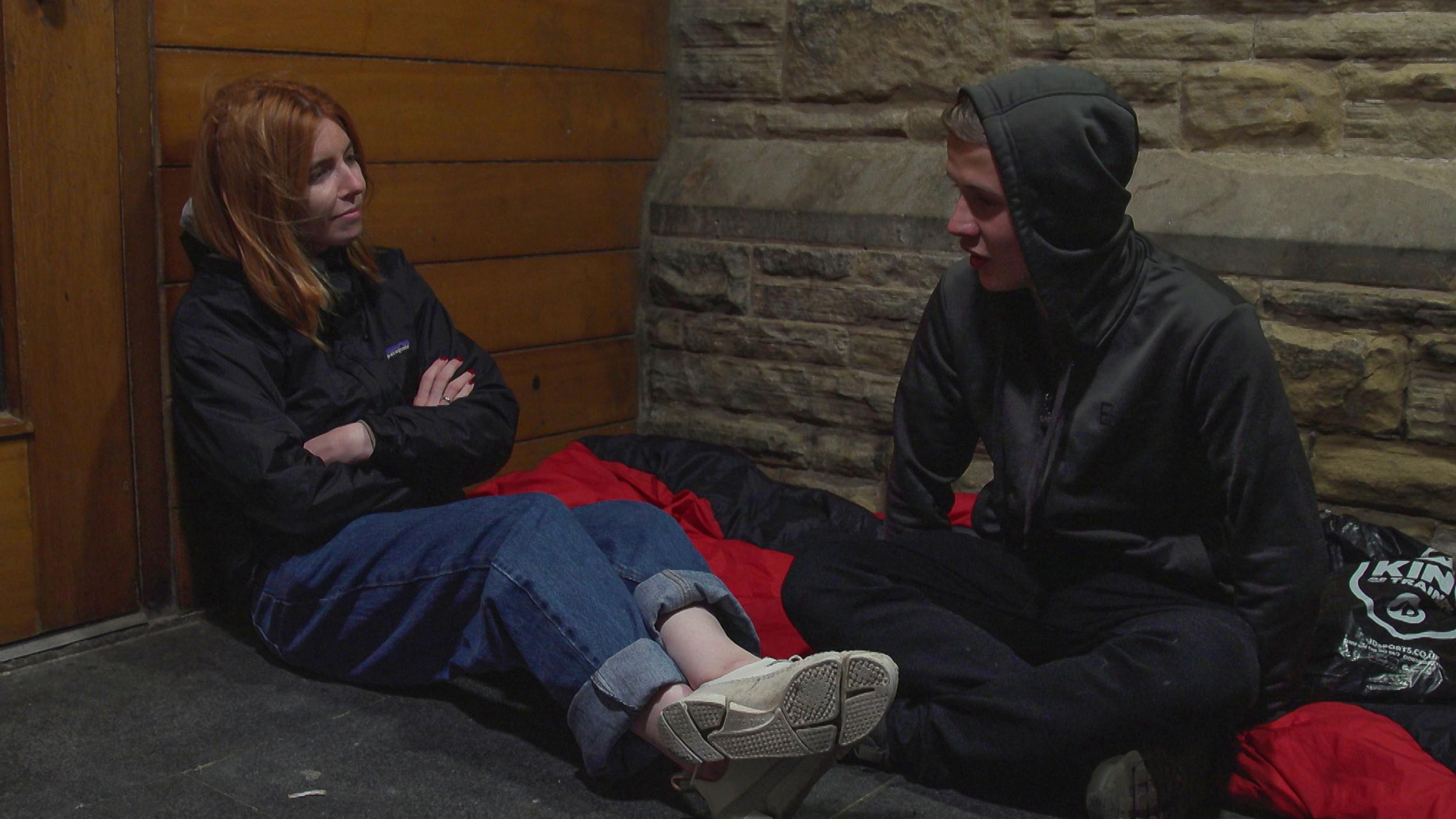Stacey Dooley: The Young and the Homeless, review: The presenter shines a light on familiar social evil
A surprising, educative Children In Need special

I’m warming to Stacey Dooley. I like her naturalistic style, and I envy the way she engages with the people she meets; I am sorry to say, I lack her empathetic skills. As such, she's an excellent pick for the BBC Children In Need appeal special about the young homeless, or, more accurately, about what the charities supported by BBC Children in Need are doing to help the young homeless. That way you’ll give them some money.
Nothing wrong with this, of course, and Dooley’s claim that the real number of young homeless is much higher than the figure officially recognised (Centrepoint, a charity, suggests around 100,000), considering thousands of teens go under the radar by sofa surfing, seems perfectly plausible.
It’s a social evil, but one so familiar that we’ve ceased to clock it. And it’s all around us, whatever the stats happen to say. For that reason, I don't mind the faint whiff of propaganda that waves over the huddled, shivering bodies in doorways and in tents across the country. It is educative to see how easily a young person can become homeless. I am surprised, though, about how relatively few of these cases are directly due – originally – to financial difficulties.
All of the teenagers Dooley interviews have found themselves out on the streets or in temporary shelters purely through family breakdown. One, for example, lost his home because his mum died on Christmas Eve and his dad the following Easter and he couldn't afford the rent. Another says that they have been kicked out to make room for mum’s new boyfriend – a decision that is both inexplicable and, rightly, resented.
I am also taken by how few are seized by drug abuse, and the suggestion that people become addicts as a result of life on the streets or “sofa surfing” rather than the other way around. Still, I am wary about whether the picture is slightly sanitised for the benefit of raising cash from more morally censorious viewers.
What is plain to see is that, as Dooley toured Blackpool, Manchester and Devon, all the young people are helped by charities filling the gaps the state has left. Most heartening of all is a rather noble man of about 19 named Josh. He sometimes gives up his assured bed in a small hostel if there is a girl also looking for shelter, because he feels less vulnerable than her (and we hear disturbing stories about females being groomed on the streets by expert gangs).
Josh also chooses to give up his chance of a bed if he is working a late shift, and so can’t make it into the queue at the hostel in time. Later, thanks to a small loan from a charity, he is able to get a flat and pay his own rent by working two jobs a day. It costs £500 to turn his life around.
The one thing that is missing from all of this is the politics. You can debate the merits of the issue either way, but I am old enough to remember how rapidly the abolition of housing benefit for 16 to 18 year olds in the 1980s was followed by the phenomenon of the young homeless, something that had not been seen in Britain since before the Second World War.
So there’s no great mystery about the young homeless. Yet, no one ever seems to mention it. Dooley is probably wise not to, but the fact remains: as worthy as it is, there is only so much any charity can do for children in need.
Join our commenting forum
Join thought-provoking conversations, follow other Independent readers and see their replies
Comments
Bookmark popover
Removed from bookmarks